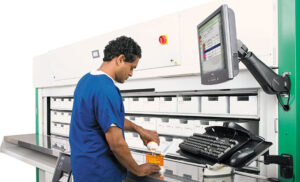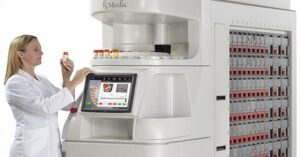The pharmaceutical industry is always changing and expanding. With the development of new technologies, companies must adapt and discover ways to harness them for optimal efficiency. As a result, automation and manufacturing firms that provide pharmaceutical systems and services are continually increasing their support capabilities.
What is Pharmacy Automation?
Pharmacy Automation is the automation of typical yet time-consuming processes in a pharmacy, such as dispensing, packaging, tracking, updating, and retrieval of medication. It also includes keeping track of client information, medical history, and prescription interactions.
Automation is transforming pharma about product development, commercial production, and real-time monitoring. It can promote industrial excellence by utilizing sensors and identification systems to not only assist organizations in complying with regulations but also in doing so at the lowest possible cost.
There are many benefits to using automation in the pharmaceutical industry for development and production. Some of the benefits are:
Efficiency
Robots can complete repetitive jobs at a faster rate than humans alone. Automated solutions are typically simple to establish and can accommodate 24-hour production cycles.
Accuracy
To learn the weighing, blending, and tableting of solids, or the stirring and filling of liquids, automated equipment does not require a learning curve. Human error is eliminated, and product faults are considerably reduced.
Visibility
From material sourcing to final delivery, automation technologies make end-to-end tracking possible. Electronic batch records, RFID technology, and workflow management can all aid in identifying and correcting inefficiencies throughout the supply chain.
Analytics
Data Analytics can be used to identify the latest trends and facilitate accurate forecasting. Analytics can also be used to improve processes and anticipate how well potential improvements will work.
Reduced Contamination
With human interaction during production and handling, the risk of product contamination is significantly reduced.
Return on investment
The automated system provides faster production, improves product quality, and saves energy.
Because of these beneficial effects on the bottom line, the upfront investments of automation technologies will be recovered exponentially during the equipment’s service life.



